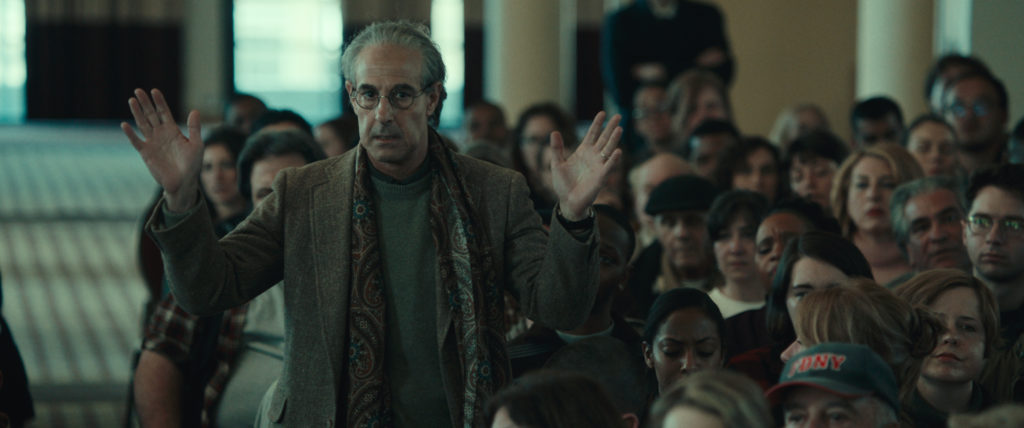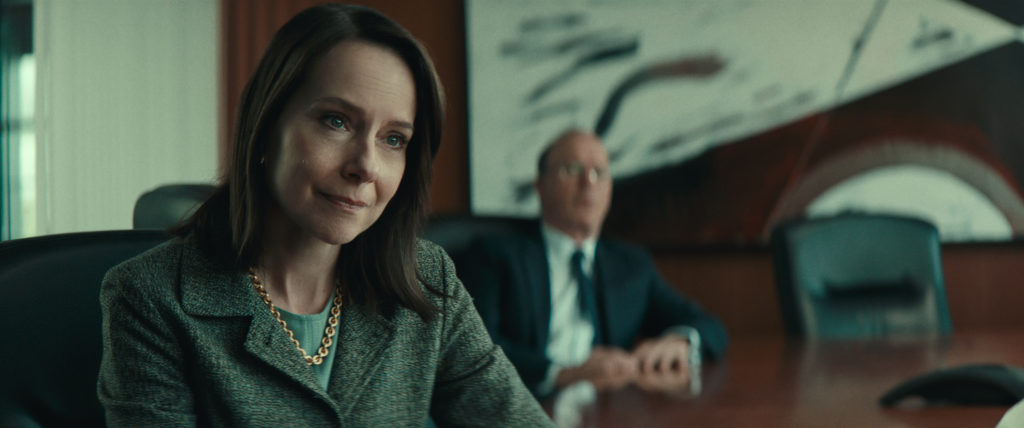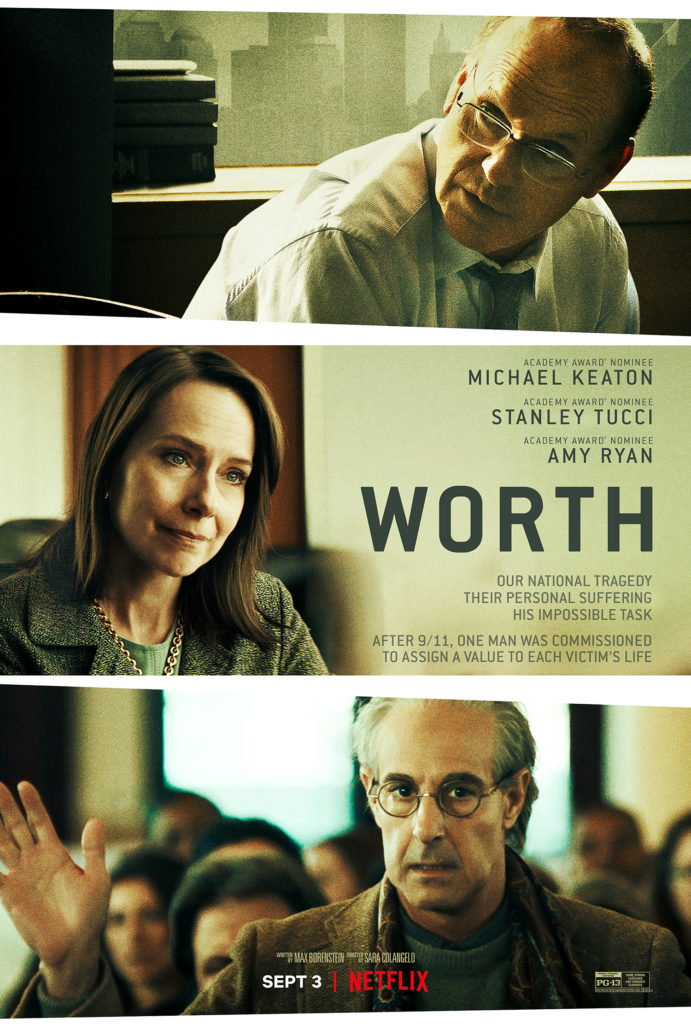Worth is a film that attempts to shine a new perspective on the aftermath of the 9/11 terrorist attack in 2001. It has strong performances throughout, especially from Michael Keaton and Stanley Tucci, which are enough to keep the audience intrigued from a script and story that may have been better suited as a documentary in areas. Although it does show some insight in an area that’s not well-known—I didn’t know that there was a fund that paid families of those who had fallen victim to the attack; I was seven years old at that time—it’s not enough to make the emotions and anger as compelling as they should be. And the never-ending question it poses is: how much is your life worth? For asking such a question tenfold throughout its runtime, it never embeds itself in the way it hopes.
The quick rundown of the 9/11 Victims Compensation Fund is this: Congress passed an act that would essentially “payoff” (I use this term loosely as the film tries to go around using it) families to avoid lawsuits against airlines that were involved in the terrorist attack on 9/11. Instead of paying everybody equally, they would go off the status quo of the victim with their salary, how many kids they had, etc. It’s easy to see why the question of how much one’s life is worth is so prevalent in the movie as families were (rightfully) outraged. Kenneth Feinberg (Keaton) is an attorney who’s in charge of the fund, alongside his partner Camille Biros (Ryan). Their goal is to get 80% of the families who are affected to sign off on the project by a deadline. It does not help when Charles Wolf (Tucci), a man whose wife was a victim of the terrorist attack, organizes a blog with weekly meetings to discuss the problems of the fund with families of the victims. In return, it makes the families very hesitant to agree with the terms laid out by Feinberg.

The biggest flaw of Worth is having it fall into a formulaic feel-good story when an attorney finally comes to terms with his stubbornness and ego and admitting his stance isn’t justified. The main conflict of the film should be about the pushback from the victims’ families, but it’s only a façade as a majority of the film is us following Feinberg’s moral compass of what’s right versus wrong. Kenneth Feinberg shows himself as having his head where the sun doesn’t shine throughout a good majority of the film. He doesn’t initially care for the families, but he cares about the idea of him taking care of them.
Keaton does a great job at conveying just that when Sara Colangelo pits him against one-on-ones with the families. He has his staff hear all the heartbreaking stories and seek them out while he sits back to direct them on how to do their jobs. He doesn’t know how to take notes, listen with an open mind, and only cares about the deadline he has. Setting the film up in that manner takes away the spotlight of who the film tries to argue are the true heroes of that tragic day. The result is a mixed bag of hearing these should-be-heart-wrenching stories and moving on unfazed by what the families went through with the loss of their loved ones. The motivation of the story gets lost in its convoluted questioning of the worth of life. There are many instances where the film feels like it’s so over-dramatized that it comes off as a clunky melodrama rather than a drama to move its audience.

The most interesting thing about Worth, aside from realizing what congress did, is hearing about who these victims were through the eyes of their families. This drives home my point that Worth may have worked better as a documentary, so it doesn’t have to balance out the drama that’s to come with having “the hero” having a change of consciousness. That’s not interesting to me in the slightest, especially when dealing with such a huge event as 9/11. Feinberg’s arc could have been handled in a documentary that highlights the successes and hardships of the fund. The film undercuts how helpful it may have been in the end to the families as it focuses more on this moral question of how much somebody’s life is worth. Apparently, Feinberg’s is worth more than those the film was trying to argue are the true heroes as he got a movie made about his moral obligation to benefit congress and the airlines.
Overall, Worth fails to address the flaws of the argument it puts forth. It backtracks quite a bit by the time the title cards in the end appear. It lists the achievements of Feinberg and Biros overseeing funds for other major American tragedies with mass shootings and terrorist attacks. Instead of leaving it up to the audience to question how much life is worth, we’re left wondering if Feinberg had more problems with those funds and if he treated any of those families the same way he did during this movie. The film wants us to root for his character by the end, but if anything, it shows how he’s only invested in learning about the victims and their families when it needs to benefit him the most.



